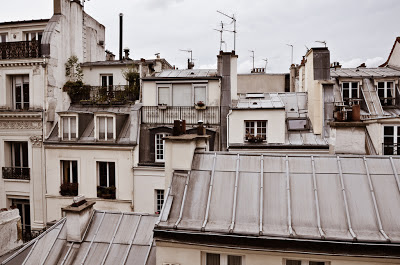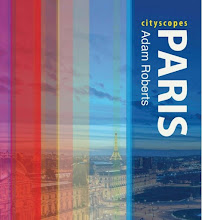A study commissioned by a multinational ahead of a new promotional campaign aims to reveal what Parisians consider to be priceless about their city. But what can we learn about Paris and its inhabitants from such investigations?
On a rainy evening recently I attended the presentation of a sociological study into what constitutes the priceless for a Parisian, organised by happycurious (a firm of social intelligence consultants) for Mastercard’s soon-to-be launched ‘Priceless Paris’ programme.
As happycurious explained at the event, the study was based around a series of empirical investigations. Firstly in a qualitative manner, through 32 face-to-face interviews, then in a quantitative manner through a larger telephone poll.
The control groups apparently included a cross-section of ages, sexes and socio-professional roles, but the agency also readily admits that only very eloquent individuals were chosen for the interviews. There is a suspicion therefore that the selected group represents only a very particular kind of Parisian (although perhaps also the kind of Parisian likely to possess a Mastercard and the means to use it!).
But what did these city spokespeople reveal about Paris and the people who live in the city? The results were in fact somewhat surprising. Whereas the standard image of a Parisian is the cantankerous complainer, the study actually revealed that they have a genuine emotional attachment to their city. As Elodie Giraud from happycurious later told me, this aspect also surprised them. “We had an intuition that this may be the case, but not to this extent. Our poll showed that 80% of Parisians are still enthralled by the city”
For Elodie, the study showed that Paris is a “capital of sentiments”, where priceless moments are mostly “intimate, personal and sometimes confidential”. They are also very individual moments, unique to each person. As the report concludes, “mon Paris inestimable n’est pas celui de tout le monde.”
If Parisians are globally happy with their city and the lives they lead there, the study findings - mostly a series of extracts from the interviews - are also tinged with a rather touching melancholy.
Paris is pictured as a very solitary city, where people go on introspective walks and listen to the sounds of their own footsteps in the street. They attend cinema screenings alone, or simply think about all the theatre shows about to begin - without them!
Parisians are often strangers to their own city, wanting to get lost outside of the comforts of their own immediate districts. It is also a city that people observe passing them by, an intangible place of neon lights and flashing facades. They are admirers of the beauty of Paris but held at distance from its heart.
The priceless moments come when – fleetingly – they feel connected to the city and inspired by it. The everyday moments, work, transport, traffic jams – even the family, are forgotten, and a moment of magic – a previously undiscovered street, a building seen in another light, an evening with friends that stretches into the night – transports them into another place.
This other Paris, a kind of imaginary film set, is often mentioned. It is a place that heightens the romance of encounters, but also makes them feel slightly unreal (“j’ai presque une vie parallèle dans un deuxième Paris qui n’est pas mon Paris du quotidien” as one participant puts it. "Je ne sais pas ce que je vais garder pour de vrai" says another).
The study paints a fascinating and poetic image of Paris and its inhabitants, but at its heart is an inescapable paradox. Whereas participants described sensations such as the odour of the Metro, or “l’orage à Paris l’été et la pluie qui s’abat sur le zinc et les toits” as being ‘priceless’, the final goal of this initiative is to encapsulate these very personal moments and transform them into something that can be packaged and sold to a group. In other words, to put a price on the priceless.
Whether the future programme even attempts to sell such magic or not though is probably irrelevant. As the multinational corporation themselves state ‘some things in life are priceless…for everything else there’s…’.
=> Priceless Paris will be launched on November 14th. Initially it will be open only to card holders in France, but the programme will later be expanded internationally. Similar initiatives already exist in New York and London.
=> Thanks to happycurious for the invitation. Click here to read the results of their study (in French only). Photos copyright Audrey Felix.
















4 comments:
Fascinating...merci!
I felt that Paris was slightly less than priceless when returning from abroad.... The whole train ride(s) up to Gare de Lyon went without a hitch but then it became quickly nightmare-like. Stuffed like sardines in a hot, airless, humid RER-train you felt very visible and the next 2h30' were anything but priceless :/
What I found interesting was that some trapped people started to joke, to talk to each other - something I NEVER experience under normal conditions, others began to insult fellow travellers (or stand-stillers...) and had there been any free space, they probably would have hit each other. Paris is many things, but it's always surprising!
How does one quantify the unquantifiable? Pin down the elusive? Package and sell the indefinable? Paris is complicated, not easily accessible, and sometimes disappointing when one most needs it to be fulfilling.
It's more than art and architecture, more than transit, more than shops and restaurants, more than the sum of its parts. You cannot boil it down to an essence. You can either accept the challenge and admit occasional failure, or you retire in defeat (and hope to try again).
The exercise you describe seems to be typical of "branding" efforts that attempt to reduce a complex entity to a catchy tagline. Where Paris is concerned, the attempt is futile. It is an organism, not a brand.
I swear I know that roof top photo. Looks very familiar to me.
Post a Comment